A Spanish student shares her secrets on how to make your studies at CBS even more awesome
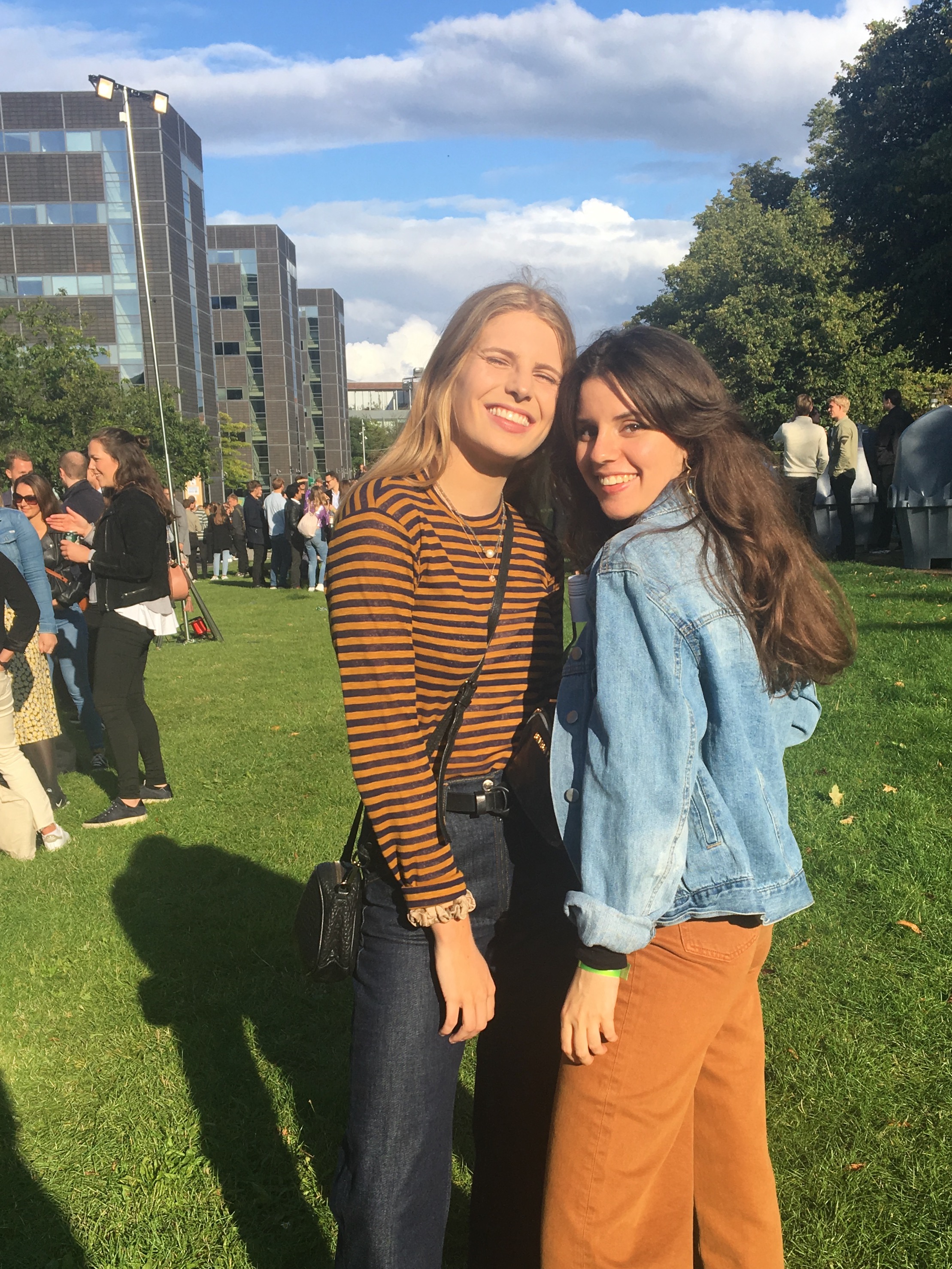
(Photo by Carla Altes Mas)
Beginnings, aside from being frightening, always feel great. New opportunities to outpace failure and firmly believe that doing things better is only a matter of intention. I’m expected to learn as years go by, semester after semester, yet I continuously end up making the same errors. And I undoubtedly recognise them when the finals are around the corner.
If starting a term at uni is, in itself, refreshing, doing it abroad with a completely new education system serves as a push to meet the “this time I’m doing things right, and I’ll give 100% of myself” commitment. Last year, I whipped through tens of pages of rankings of the best universities. One weighted reason for why I chose Copenhagen: CBS occupied top positions. I knew it also meant that passing courses with high grades wouldn’t be effortless.
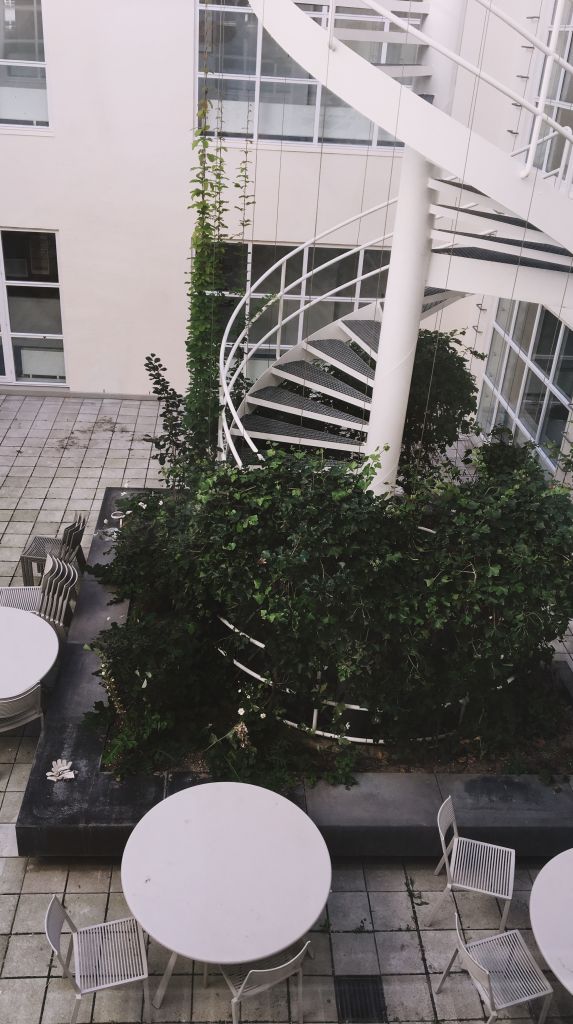
(Photo by Carla Altes Mas)
Motivation comes with starts, but it has different shapes and arrives unexpectedly. Sometimes, in the form of school supplies and agendas that wind up abandoned in the second drawer of the desk. Others, like energy boosts at 1 a.m. during a sleepless night, and a sudden urge to get your life together.
Tough, when you get used to a new reality, monotony suddenly overshadows. And catching up with day-to-day tasks becomes harder.
The gradual fulfilment of progressing in my academic life hasn’t been achieved entirely by me, as the education system itself has been pushing it. I’ve been forced to abandon the studying methods I’ve followed during all my school years.
Back in Barcelona, I attended classes every weekday. I had 80% compulsory assistance in each course and graded seminars every Friday to ensure I understood what the professor explained in the lectures. After two months at CBS, and dozens of articles on how to avoid procrastination, the most relevant learning I got is how to prioritise, and how necessary yet poorly intuitive it is sometimes.
Surely it seems that, since there isn’t continuous evaluation, there aren’t many things to catch up. How to avoid putting responsibilities aside? Start the day with a “to-do list”. After getting advised to do them for years, it hasn’t been until this term that I’ve realised how simple, quick and effective they are.
I could not stress enough how much they’ve helped me. Keeping everything up to date is more comfortable if there are some self-imposed deadlines. Seeing the tasks written down makes it tougher to avoid the guilt that comes from ignoring them.
I guess that has something to do with being extremely self-demanding. I love it, except for when the correlation between efficiency and stress becomes negative. And it seldom happened throughout most of my college years. The massive pressure I used to feel from having to hand in weekly group projects and essays that represented, at least, half of the course’s grade, has turned to responsibility.
And such responsibility is driven by the freedom of choice that comes with having a final that determines the full mark. Do I live calmly because no one evaluates me or scolds me to study? Yes.
Am I assured that two weeks before the finals I’ll be at the library from 8 a.m. to 8 p.m., stretching my hair and debating whether to drink coffee or some infusion? Probably, but I’m working on it.
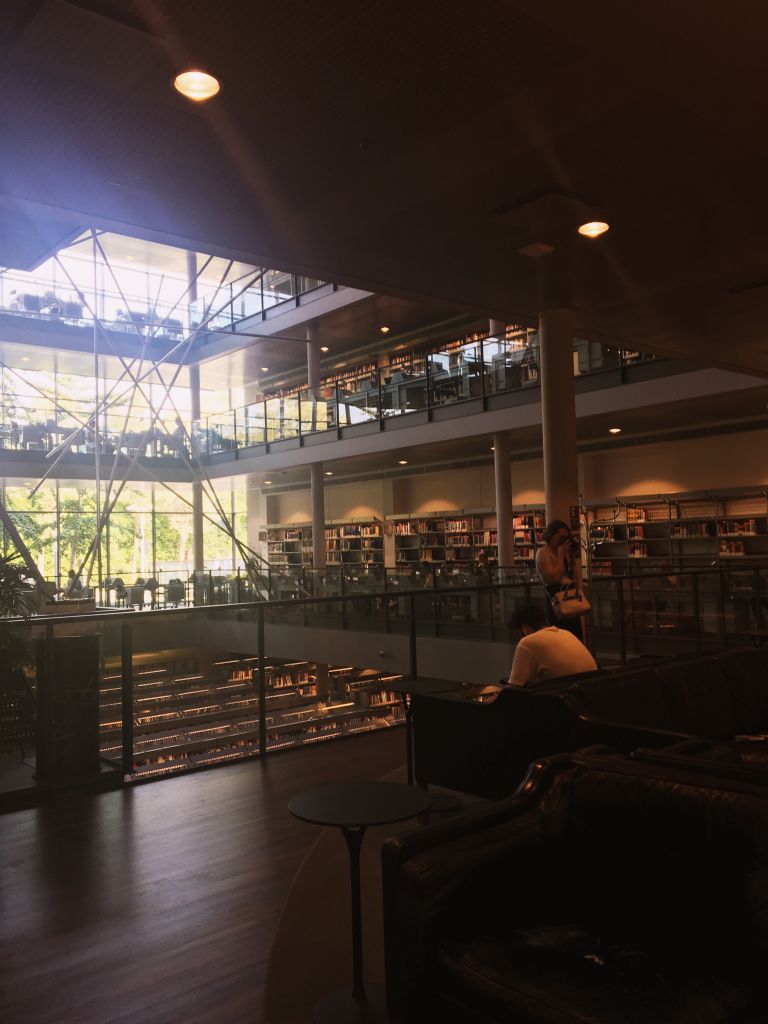
(Photo by Carla Altes Mas)
I come from studying at a small faculty located in the heart of Barcelona. The most I could take from it was going to some park or cute cafe between classes. The weather was always favourable, and there wasn’t much to do inside. CBS has one of the most fantastic campuses I’ve ever seen. If you’ve been lucky enough to come to study here, I’ll give you some recommendations I wish I knew when I arrived:
1. Do not study only at the main library
There are plenty of fantastic places. My favourites: 1) Kilen – breath-taking and convenient, I’ve spent countless hours sitting on its steps. It’s perfect for doing work that doesn’t require extreme concentration or chatting with friends. 2) Dalgas Have: another impressive building. There’s a lovely place to study on the top floor, and it isn’t as crowded as the library in Solbjerg Plads. Also, there are some convenient spots along the corridor for doing group projects.
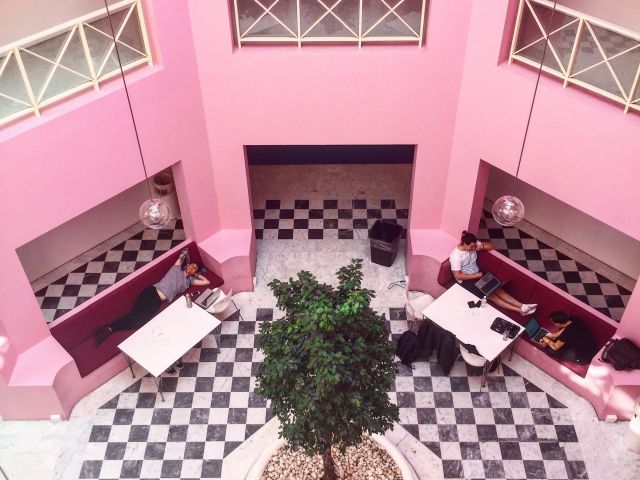
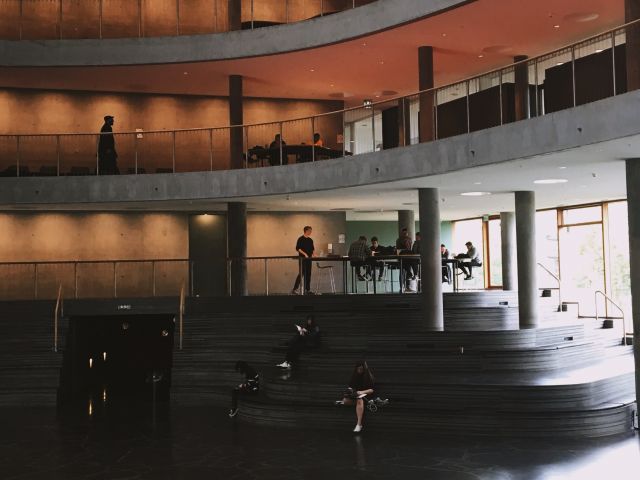
2. Reserve a seat if you’re planning to study for long
You can book single seats in any of the libraries for as many hours as you like. I usually book a seat once I’ve sat there. It’s effortless and means no one will come later and ask you to leave the seat they’ve reserved when it’s too crowded to find anywhere else to sit.
3. Check the organizations
CBS has more than 100 student organisations. Even if you don’t plan to engage in one entirely, I’m sure some will fit your interests. Be aware of the countless activities they offer – I’ve been enjoying Yoga Classes at Dalgas Have for DKK 20 a week. Convenient, huh?
4. Wait until 2 p.m. to have lunch
If you don’t mind eating late and queueing, you can enjoy a full meal for DKK 15 and help prevent food waste.
5. Enjoy the sun when it’s there
Being used to having about 150 hours of sunshine even in December living in Denmark is tough for me. Nearby Solbjerg Plads, there are plenty of green zones and seats for relaxing. If you have a study break and you’re lucky enough that there is sunlight outside, don’t miss the chance.
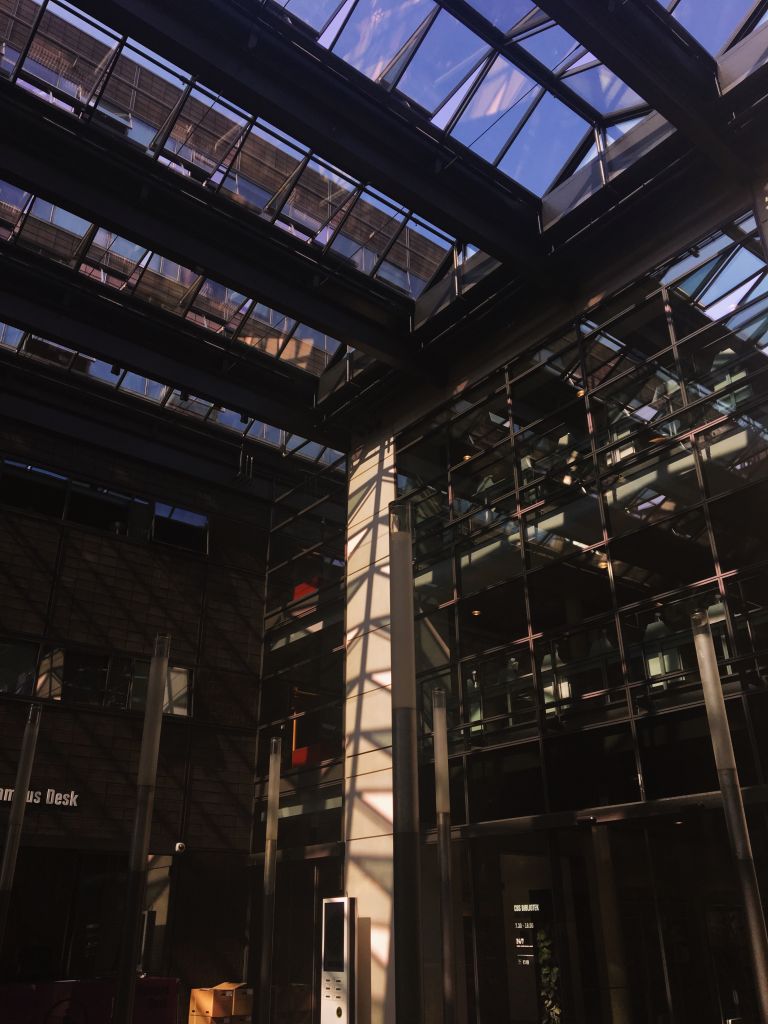
Studying at CBS has made me realise there’s no change without effort, and no progress without discomfort. I’ll keep making mistakes as the semester goes by and will carry on learning from them. In the end, that’s how you approach adulthood, and how your backbone gets strengthened.



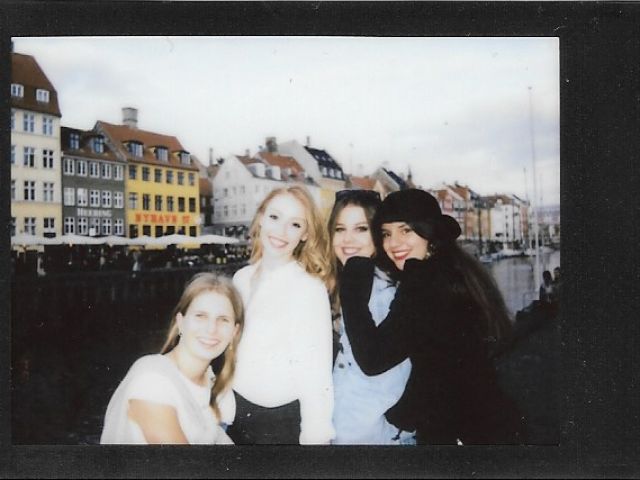
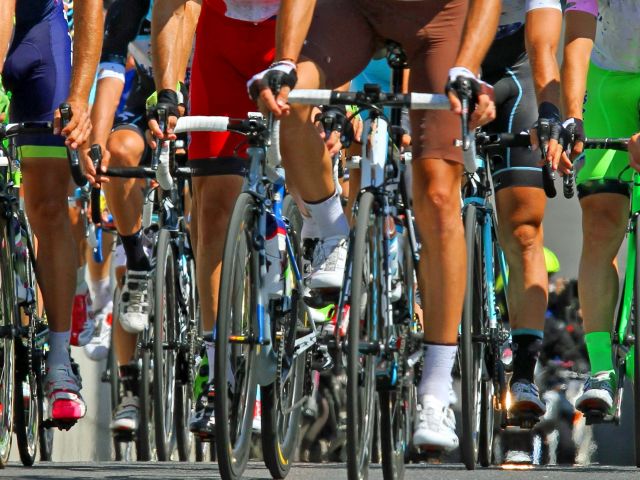
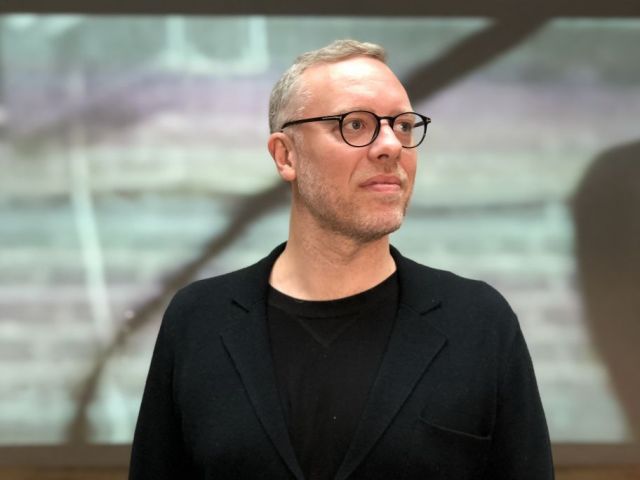




























































































































Comments